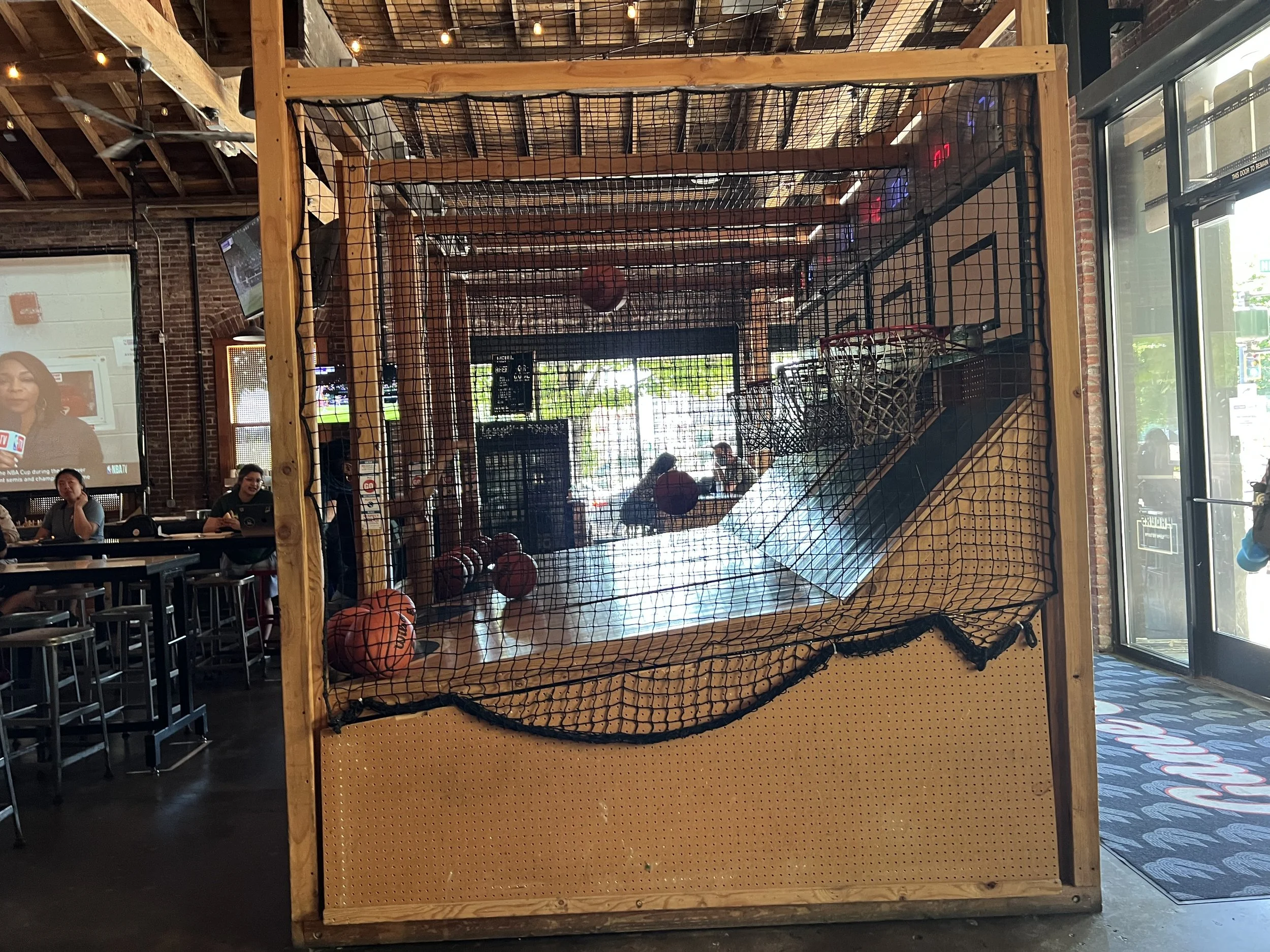Enabling collective intelligence: FOSSY Day 4
Brainstorms are always better with a little basketball.
Collective intelligence (CI) runs on contribution, but setting up a system to elicit collective intelligence isn’t easy. Many open-source projects are created and maintained by an individual founder, who sometimes claims the title of “Benevolent Dictator for Life.” It’s halfway a joke, pointing out the inherent tension between a participatory project and the unilateral actions it takes to set one up. Nothing is free – no margin, no mission. But figuring out how to distribute power quickly and effectively is essential to generate CI.
“If you don’t have the contributors be a part of the decision-making process, that is the definition of exploitation. It’s uncomfortable to talk about.”
Three Key Insights
Co-op
The precursor to the open-source movement and modern collectively intelligent organizations is the co-op. For 180 years, co-ops have “united voluntarily to meet their common economic, social, and cultural needs and aspirations through a jointly-owned and democratically-controlled enterprise.”
The boundary problem
The “boundary problem” is the hardest problem to solve in a democratic or distributed organization – who gets to vote? One answer to this lies in the principle of affected interests, loosely stated as “Those who are affected by a decision-making process should have input into that decision-making process.” But that still leaves thorny questions about whether or how influence should be weighted.
FOSSY community members blow off steam and make friends over darts.
Stability in collectives
Human and hybrid collectives need to be stable to continue generating CI. Threats to stability include electing an autocrat, decaying communication norms leading to toxicity, and unilateral actions that damage critical infrastructure. The interconnectedness of the FOSS community means that if a single project goes down, it impacts the entire ecosystem. After all, we know that tightly coupled systems are more prone to failure!
Three Faces of FOSSY
Matthew Leon is a systems software engineer at Intel and a volunteer organizer for FOSSY. He is pursuing a master's degree in financial engineering and is digging deep into GPT-4’s capabilities as a curriculum designer and custom tutor. Given his appetite for learning, I’m very excited to see how far he can go with these new tools.
Joshua “Wilcox” Hustler is an experienced DevOps engineer and culture specialist with the mind of a hacker/engineer. They constantly look for holes in existing systems where new projects can spin up and flourish and understand the importance of supporting the people within the project.
Wilcox shares the secret to their success – an immaculate home coffee bar.
Griff Thomas is a trademark lawyer serving the FOSS community. By protecting the organizations that are the backbone of the FOSS ecosystem, Griff strengthens the entire venture. He was joined at FOSS by his adult son, who works to develop responsible approaches to the Northwest’s water use.
Two Sessons I Enjoyed
Justin Dorfman’s “How AI can help sustain open source, not destroy it” was an empathetic glimpse into the daily experiences of FOSS maintainers, who are often spread thin, beset by toxic comments, and burning out. Dorfman assessed foundation models’ ability to alleviate these pain points and showed how empowering maintainers could have a multiplier effect on the health and productivity of the entire ecosystem.
W. Watson brings the house down with his nuanced reflections on governing decentralized collectives.
W. Watson delivered the best talk I heard at FOSSY this year in “The Open Source Demos - Who is Entitled to Vote in an Open Source Organization?” He shared a rich and nuanced portrait of democracy and how organizations that choose to distribute control widely can succeed. Watson has studied political science and history in depth, in addition to his three decades as a professional software developer, so he could go deep into how these issues affect the FOSS community and bring in perspectives from divergent fields.
Looking forward to tomorrow
I’m flying home to Atlanta tomorrow, but I won’t be watching movies on a plane. Balls have been set rolling this week in Portland that demand immediate attention! FOSSY 2023 has been a spark point for the ideas and relationships my team needs to take our projects to the next level. I hope to be back next year for the second!



